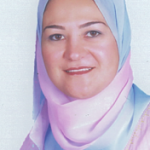Background
There is no dispute that the right of refugees and asylum seekers to access decent work and benefit from social protection is important for reducing their vulnerability and protecting their dignity, yet this remains a worldwide challenge. This study focuses on Egypt, a country in which its own national population faces considerable challenges upon entering the labor market; yet, it officially host over half a million registered refugees and asylum seekers from many nationalities.
Methods
This report relies on a mixed-methods research approach, using recent quantitative phone survey data from the 2021 Socio Economic Profiling of Refugees and Asylum Seekers in Egypt (SEP) complemented with novel qualitative interviews with refugees and asylum seekers, to investigate their barriers to formal employment in Egypt.
Findings
The findings of this report confirm how the legal framework in Egypt often excludes the integration of refugees and asylum seekers into the formal labor market. Both the qualitative and quantitative data underscore that a substantial portion of refugees are employed in informal sectors in occupations where social insurance coverage is lacking, even for nationals. The current legal framework limits many refugees and asylum seekers to the only option of working in the informal economy, where they not only experience hardships in finding a job; but also overwhelmingly face employers’ abuse and exploitation. Additionally, refugees and asylum seekers expressed the difficulty faced in finding a job in one’s field of study due to the lack of recognition of their education certificates in Egypt.
Recommendations
The primary recommendation set forth in this study is the urgent need to enhance the inclusivity of social protection programs to encompass all individuals working within the informal economy, including refugees and asylum seekers, to ensure a healthy and efficient labour market functioning for both, the national and non-national labor.
This Policy Research Report is supported by the United Nations Children's Fund (UNICEF), the International Labour Organization (ILO), the United Nations High Commissioner for Refugees (UNHCR), and the World Food Programme (WFP). The views expressed in this report are solely those of the authors and do not necessarily reflect the official positions of supporting agencies.

Research Fellows
Rania Roushdy
Associate Professor of Practice, Department of Economics,...


